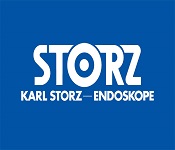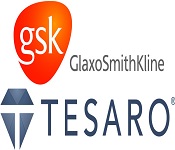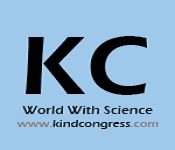Renowned Speakers

Arfa Abrar Malik
Key Laboratory of Engineering Plastics and Beijing National Laboratory for Molecular Science China
Recommended Global Medical Webinars & Conferences
Europe & UK
Asia Pacific & Middle East
Canada
Catalysis 2022
About Conference
Polymer Nanotechnology conferences invite all the participants from all over the world to attend “2nd International Conference on Polymerization Catalysis, Flexible Polymer and Nanotechnology’’ during April 04-05,2022 Geneva, Switzerland While much research and product development in industry is product oriented, it requires scientists with a grasp of the foundations of chemistry, creativity, the ability to work together and enjoy seeing the practical challenges encountered and solutions adopted in the fields of Polymer Chemistry. Polymer Catalysis 2022 covers all the aspects of related field researchers, The forum of scientists and students from all corners of the globe, come together to discuss polymer science and its advances. It also provides a premier interdisciplinary platform for researchers, practitioners and educators to present and discuss the most recent innovations and trends. Conference Series LLC Ltd. Conferences has taken the initiation to gather the world class experts both from academic and industry in a common platform at Polymer Nanotechnology Conferences 2022. Abudhabi, UAE which includes prompt keynote presentations, Oral talks, Poster presentations and Exhibitions.
Why to attend our Conference
It promotes the positive contributions of Polymers to help raise awareness and correct misconceptions
This experience helps the Conference to be an interactive forum and encourages a strong level of dialogue and discussion, thus maximizing the benefits of attendance. Each session of the meeting will be included with expert lectures, poster and discussions, join us to design sustainable development processes, advances the business and sustainability in drug production for further health care protection of lives. We are glad to invite you on behalf of organizing a committee to join us, where you are the decision maker for the future.
The conference will be comprised of sessions by world-class experts in the field of Polymer Chemistry. In UAE Polymer Catalysis 2022, International symposiums, B2B meetings, International Workshops will also be organized to discuss the specific topics in the field of Polymer and related fields.
A Unique Opportunity for Advertisers and Sponsors at this International event.
Target Audience for Polymer Catalysis 2022:
Eminent Scientists/ Research Professors in the field of polymer chemistry, Nanotechnology, Nanoscience, Nanomedicine, Junior/Senior research fellows, Students, Directors of polymer research companies, Chemical Engineers, Members of different physics and Chemistry associations
Tracks / Sessions
Track 1: Polymerization Catalysis
Polymer Catalysis has turned into a free and flourishing part of science. Broad improvement of this field is credited to progress accomplished in amalgamation and examination of alleged useful polymers and to progress achieved inhomogeneous, metal complex catalysis. This has prompted the original thought of heterogenization of homogeneous metal complex impetuses. While the compound, monetary and social focal points of biocatalysis over conventional synthetic methodologies were perceived quite a while back, their application in mechanical generation forms have been as of late leap forward in present-day biotechnology, (for example, powerful protein articulation frameworks, coordinated development and so forth)
Track 2: Nanoscience and Technology
Nanotechnology as characterized by size is normally extremely expansive, including fields of science as different as surface science, natural science, atomic science, semiconductormaterialscience, vitality stockpiling, nanofabrication, sub-atomic designing, and so on. The related research and applications are similarly different, going from expansions of traditional gadget material science to totally new methodologies dependent on sub-atomic self-get together, from growing new materials with measurements on the nanoscale to coordinate control of issue on the nuclear scale.
Track 3: Nano Characterization (SEM, AFM, ATM, FTIR)
Nanocharacterization Techniques covers the principle portrayal methods utilized in nanomaterials and nanostructures. The parts centre around the basic parts of portrayal strategies and their unmistakable methodologies. Critical advances that have occurred over ongoing years in refining systems are secured, and the numerical establishments expected to utilize the procedures are additionally clarified in detail. It is a vital reference for materials researchers and designers searching for a thorough examination of nanocharacterization procedures with the end goal to set up which is best for their necessities.
Track 4: Nanomaterial for Clean and Sustainable Energy
Nanotechnology has developed a sustainable energy production scheme which is one of the most important scientific challenges of the 21st century. The challenge is to design, to synthesize and to characterize new functional nanomaterials with controllable sizes, shapes and/or structures. It is now one of the fastest growing research fields in the world and will hopefully head to the development of a renewable energy economy in which fossil fuel resources will only be used to produce more valuable chemicals. This vision is that energy, environmental and security problems created by the consumption of fossil fuels will be solved once and for all.
Track 5: Nano Materials and Nano Devices
Researchers have not consistently settled on an exact meaning of nanomaterials, however, concure that they are incompletely described by their small size, estimated in nanometers. A nanometer is one-millionth of a millimetre - roughly 100,000 times littler than the distance across of a human hair. Nano-sized particles exist in nature and can be made from an assortment of items, for example, carbon or minerals like silver, however, nanomaterials by definition must have something like one measurement that is not as much as around 100 nanometers. Most nanoscale materials are too little to be seen with the stripped eye and even with customary lab magnifying instruments
Track 6: Semiconductor Nanodevices
Semiconductor nanocrystals (NCs) are produced using a wide range of mixes. They are alluded to as II-VI, III-V or IV-VI semiconductor nanocrystals, in view of the intermittent table gatherings into which these components are framed. For instance, silicon and germanium are bunch IV, GaN, GaP, GaAs, InP and InAs are III-V, while those of ZnO, ZnS, CdS, CdSe and CdTe are II-VI semiconductors. In nanocrystalline materials, the electrons are kept to locales having one, a few measurements when the relative measurement is practically identical with the de Broglie wavelength. For a semiconductor like CdSe, the de Broglie wavelength of a free electron is around 10 nm
Track 7: Thin Film Nanodevices
Nanodevices are nanoparticles that are made to interact with cells and tissues and completing quite certain tasks. The most celebrated nanodevices are the imaging apparatuses. Oral pills can be taken that contain smaller than usual cameras. These cameras can achieve profound parts of the body and give high-goals pictures of cells as little as 1 μm in width. (A red platelet is 7 μm wide .) This makes them exceptionally valuable for analysis and furthermore amid medical procedures. As computer memory ferromagnetic and ferroelectric thin films are used. Thin film technology is being explored as a means to substantially reduce the cost of photovoltaic systems, which are used to collect solar energy.
Track 8: Polymer Nanotechnology
Polymers plans to order the flow patterns and research bearings inside the readiness, portrayal and use of polymer-based composite materials in electrical designing applications. This kind of material has developed to wind up a standout amongst the most completely explored materials nowadays, animated by the interest for asset effective get together of generators, transformers, specialized gadgets, and so on. Novel composites are to be utilized as protecting materials with high warm conductivity and amazing temperature dependability, through which untimely maturing and debasement of gadgets will be maintained a strategic distance from or possibly decreased
Track 9: Polymer Composites
Particulate fillers are utilized to alter the physical and mechanical properties of polymers from multiple points of view. Polymeric materials are noted for their adaptability, high protection from synthetic compounds, extraordinary attachment to an assortment of substrates, sturdiness, high electrical opposition, toughness at high and low temperatures, low shrinkage upon fix, adaptability, and the straightforwardness with which they can be poured or thrown without framing bubbles. Different sorts of polymers and polymer-grid composites strengthened with filter particles have an extensive variety of modern applications, for example, electrical ventures, business and military flying machines, radiators, anodes, floor covering, composites with warm solidness at high temperature, and so forth. The restored tars with tight three-dimensional sub-atomic system structures have numerous helpful properties, for example, the superb mix of solidness, quality, concoction obstruction, protecting properties and ecological strength. The expansion of such particulate fillers into polymers is basically gone for the cost decrease and firmness change for business applications
Track 10: Biopolymer and Bio-Degradable Materials
Bundling waste structures a critical piece of metropolitan strong waste and has caused expanding natural concerns, bringing about a reinforcing of different controls went for lessening the sums created. Among different materials, an extensive variety of oil-based polymers is as of now utilized in bundling applications. These are basically all non-biodegradable, and some are hard to reuse or reuse because of being mind-boggling composites having changing levels of tainting. As of late, noteworthy advancement has been made in the improvement of biodegradable plastics, to a great extent from inexhaustible normal assets, to deliver biodegradable materials with comparable usefulness to that of oil-based polymers. The extension in these bio-based materials has a few potential advantages for ozone depleting substance adjusts and other ecological effects over entire life cycles and in the utilization of inexhaustible, as opposed to limited assets. It is planned that utilization of biodegradable materials will add to supportability and a decrease in the natural effect related with the transfer of oil-based polymers.
Track 11: Polymerization on Oleffin and Ziegler Nata
An examination on another age of MgCl2-bolstered Ziegler−Natta impetuses, which contain dialkylpropane diethers as inward benefactors and have the property of creating exceedingly dynamic and stereospecific impetuses with no outside giver, has been performed. The conduct of three distinctive diethers (2,2-diisobutyl-1,3-dimethoxypropane, 2,2-dicyclopentyl-1,3-dimethoxypropane, and 2-ethyl-2-butyl-1,3-dimethoxypropane) as inside contributors is contrasted and the conduct of a similar diethers when they are utilized as outer benefactors with an impetus containing diisobutyl phthalate as interior giver. The outcomes acquired demonstrate that the equivalent isospecific focuses are created when the equivalent diether giver is available as an interior contributor or replaces diisobutyl phthalate amid polymerization when it is included as an outer benefactor. The entirety of the present outcomes and of the beforehand acquired discoveries on conventional upheld Ziegler−Natta impetuses has empowered us to achieve a few ends on the job and complementary conduct of inner and outer giver
Track 12: Flexible Electrodes
A one-advance and large-scale manufacturing engineered course for an adaptable lessened tungsten oxide-carbon composite nanofiber film is exhibited by means of an electrospinning system. The WOx– C-NF film shows the uncommon high substance of metal-oxides and great adaptability) without the utilization of adaptable help materials like CNTs or graphene. The WOx– C-NF movie is specifically utilized as an anode in a lithium particle battery (LIB). Contrasted and already announced tungsten oxide anodes, the WOx– C-NF film shows high reversible limit. stable cycle, and enhanced rate execution, without the utilization of added substance carbon, a polymeric fastener and a present gatherer. Additionally, control terminals created by customary procedures bolster the beneficial outcomes of both the detached cathode and metal-oxide inserted carbon 1-D nanofiber structure
Track 13: Recent Development in Polymer Synthesis
In application prospects and execution qualities and in property range and assorted variety, polymers offer oddity and flexibility that can barely be coordinated by some other sort of materials. Polymers are gigantic macromolecules made out of rehashing auxiliary units called monomers. Polymer improvements incorporate combination as well as its auxiliary – utilitarian relationship, polymer bioconjugation, and novel polymerization methods. In Polymerization, numerous monomers are consolidated in a compound response to frame macromolecules of various sizes and shapes. Polymers are prominent in regular daily existence - from plastics and elastomers on the one side to normal biopolymers, for example, DNA and proteins then again.
Track 14: Polymer in Engineering and Technolog
Polymer designing and innovation is a piece of the developing field of materials building that spotlights on plastics and different polymers. Polymer Engineering is, for the most part, a building field that outlines, investigations, or potentially alters polymer materials. The forecast of their conduct relies upon our comprehension of these perplexing frameworks.I t is the amalgamation of Polymer Science with Chemical Engineering. polymer handling methods require atomic demonstrating procedures. Close to metals and earthenware production, the ongoing improvements of Polymer Technology have changed the field of material science by expanding the utilization of polymer based substances from building materials to Packing materials, Fancy embellishment articles, Communications, Automobile, Aircrafts, and so on. Engineered polymers have since quite a while assumed a moderately imperative job in present-day therapeutic practice. Polymers are currently a noteworthy materials utilized in numerous mechanical applications.
Track 16: Nano Electronics
Nanoelectronics holds a few responses for how we may build the capacities of gadgets while we diminish their weight and power utilization. A portion of the nanoelectronics zones a work in progress, which you can investigate in more detail by following the connections given in the following segment, incorporate the accompanying subjects. Enhancing show screens on gadgets. This includes diminishing force utilization while diminishing the weight and thickness of the screens. Increasing the thickness of memory chips. Scientists are building up a sort of memory chip with an anticipated thickness of one terabyte of memory for each square inch or greater
Track 17: Polymer Market
The advertising blend is an essential piece of the showcasing of polymers and comprises of the promoting 'apparatuses' you will utilize. Be that as it may, showcasing technique is more than the promoting of blended polymers and plastics. The promoting system defines your advertising objectives, characterizes your objective markets and depicts how you will approach situating the business to accomplish advantage over your rivals. The promoting blend, which pursues from your showcasing technique, is the manner by which you accomplish that 'one of a kind offering suggestion' and convey advantages to your clients. When you have built up your advertising system, it is normally composed down in a promoting plan. The arrangement ordinarily goes more remote than the system, including a subtle element, for example, spending plans. You need a showcasing system before you can compose an advertising plan. Your promoting technique may work well for you for various years yet the subtle elements, for example, spending plans for advertising exercises, of the showcasing plan may should be refreshed each year.
Track 18: Nano Medicine and DNA Nanotechnology
Functionalities can be added to nanomaterials by interfacing them with organic atoms or structures. The extent of nanomaterials is like that of most organic particles and structures; in this way, nanomaterials can be helpful for both in vivo and in vitro biomedical research and applications. So far, the reconciliation of nanomaterials with science such as biocompatible nanoparticles and nanorobots, for diagnosis, delivery, sensing or actuation purposes in a living organism has prompted the advancement of symptomatic gadgets, differentiate specialists, investigative devices, active recuperation applications and medication conveyance vehicles.
Track 19: Nanotechnology for Photovoltaics and Supercapacitors
With the developing risk of contamination, an unnatural weather change, and vitality emergencies caused by our solid reliance on the diminishing supply of nonrenewable petroleum products, the look for spotless and inexhaustible elective vitality assets is one of the most earnest difficulties to the feasible improvement of human civilization. notwithstanding the vitality assets which drive human culture today, for example, oil, coal, water driven power, flammable gas, wind control, and atomic plants, a focal point of dynamic innovative work is the investigation of option maintainable vitality assets, for example, sunlight based energy, geothermal power, biomass/biofuel, and hydrogen energy. Although there is potential for the utilization of these elective hotspots for the substantial scale supply of intensity, the vitality that can be gathered from these sources is still principally utilized for little scale controlling applications. An emotional mechanical pattern today is the quick development of individual and versatile hardware for applications in correspondence, medicinal services, and natural observing Independently, the power utilization of these gadgets is low; be that as it may, the quantity of such gadgets conveyed can be enormous. At present, the controlling of electronic gadgets still depends on rechargeable batteries. The measure of batteries required increments in extent with the expansion in the number and thickness of portable electronic gadgets utilized and may bring about difficulties for reusing and substitution of the batteries
Track 20: Nanogenerators and Piezoelectronics
The nanogenerators have some components inside these whose structures are similar to nanowire made up of a Piezoelectric ceramic material. Piezoelectric materials can generate an electric current just by being bent. In a space less than the width of a human hair hundreds of nanowires can be packed side by side. At this scale and with the combined flexibility of the nanogenerator's components, even the least movement can generate current. Nanogenerators are small in size but increasingly powerful as well as responsive.
Track 21: Nanocatalysis and Application in Chemical Industry
Both in homogeneous and heterogeneous catalysis, the field of nanocatalysis has undergone an explosive growth during the past decade. Since nanoparticles have a large surface-to-volume ratio compared to bulk materials, they are attractive candidates for use as catalysts. The main aim of this research is to produce catalysts with low energy consumption,100 per cent selectivity and long lifetime which includes the use of nanomaterials as catalysts for a variety of catalysis applications. Nanoparticles of semiconductors, metals, oxides and other compounds have been widely used for important chemical reactions.
Track 22: Polymer Material Science and Catalyst Engineering
polymer blend is a generally new (third) stream that has turned acids, bases, radical species, et cetera, utilized since 1920s, and a moment stream utilizing impetuses of progress metals and uncommon metals since 1950s. Enzymatic catalysis is earth benevolent, yet permits the amalgamation of different normal and unnatural polymers that have all around characterized structures with controlled stereochemistry, regioselectivity, and chemoselectivity. This survey will concentrate on late advancements in compound catalyzed polymer blend in the zones of polysaccharides, polyesters, and polyaromatics, and also polymer alteration.
Track 23: Nanotechnology in Oil and gas Application
The light vaporous hydrocarbons created by synergist breaking are exceptionally unsaturated and are normally changed over into high-octane gas segments in polymerization or alkylation forms. In polymerization, the light olefins propylene and butylene are prompted to consolidate, or polymerize, into particles of a few times their unique atomic weight. The impetuses utilized comprise of phosphoric corrosive on pellets of kieselguhr, a permeable sedimentary shake. High weights, on the request of 30 to 75 bars (3 to 7.5 MPa), or 400 to 1,100 psi, are required at temperatures running from 175 to 230 °C (350 to 450 °F). Polymer fuels got from propylene and butylene have octane numbers over 90. The alkylation response additionally accomplishes a more drawn out chain particle by the mix of two littler atoms, one being an olefin and the other an isoparaffin (normally isobutane). Amid World War II, alkylation turned into the principle procedure for the fabricate of isooctane, an essential part in the mixing of avionics fuel. Two alkylation forms utilized in the business depend on various corrosive frameworks as impetuses. In sulfuric corrosive alkylation, concentrated sulfuric corrosive of 98 percent immaculateness fills in as the impetus for a response that is completed at 2 to 7 °C (35 to 45 °F). Refrigeration is vital as a result of the warmth created by the response. The octane quantities of the alkylates delivered run from 85 to 95.
Track 24: Advanced Nanomaterials
The nanomaterial is the basic part of the nanoscience and nanotechnology. The complex functions of nanomaterials in systems require further improvement in the preparation and modification of nanomaterials. Such advanced nanomaterials have attracted a massive interest during recent years and will form the basis for further development in this area. The control of composition, size, shape, and morphology of Nanomaterials and Nanoparticles is a necessary foundation for the development and application of Nanoscale devices in all over the world. These are the critical enablers that allow mankind to exploit the ultimate technological capabilities of magnetic, electronic, mechanical and biological systems. Magnetic Nanodevices, Nano-biosensors, Nanoswitches, Optical Biosensors. Nanodevices will ultimately have an enormous impact on our ability to enhance energy conversion, produce food, control pollution, and improve human health and longevity.
Track 25: Macro Polymer and Functional Polymer
Polymer portrayal is the explanatory branch of polymer science. The teach is worried about the portrayal of polymeric materials on an assortment of levels. The portrayal commonly has as an objective to enhance the execution of the material. In that capacity, numerous portrayal systems ought to in a perfect world be connected to the attractive properties of the material, for example, quality, impermeability, warm security, and optical properties.
Track 26: Metallocene Catalyst
A post-metallocene impetus is a sort of impetus for the polymerization of olefin, i.e. the mechanical generation of the most widely recognized plastics. "Post-metallocene" alludes to a class of homogeneous impetuses that are not metallocenes. This zone has pulled in much consideration in light of fact that the market for polyethylene, polypropylene, and related copolymers is extensive.
Track 27: Polymer in Ceramics
Polymer artistic materials are inorganic-natural composites comprising of clay fillers and a lattice of natural polymers – especially polysiloxanes . The arrangement of polymer earthenware production depends on warm curing of functionalized tars having the capacity to frame clay like structures in the aftereffect of warmth treatment over 200°C.Polymer-pottery can be handled by an expansive assortment of plastic shaping strategies like high weight infusion trim or extrusion.Polymer-artistic composites are portrayed by high warm soundness (conceivable administration temperatures over 600°C), low shrinkage, high strength of shape, and high dimensional exactness. Pertinent utilization properties (e.g. electric al conductivity, warm conductivity, dielectric al conductivity) and handling parameters can be balanced by the decision of proper practical fillers, cover frameworks, and plasticizing additives.The utilization of polymer-fired materials could pay off if a cost productive simple preparing of the material incorporating plastic shaping strategies to acknowledge complex formed parts are required and the warm soundness of standard materials like plastics does not suffice.Various electro-specialized segments subjected to overwhelming warm load could be created in view of polymer-artistic composites. The assorted variety of use of polymer-pottery could likewise be shown by the advancement of joining materials and frothed materials displaying high warm solidness and great warm confinement capacity
Track 28: Quantum Dots and Nano-Magnetism
Quantum Dots and Magnetic Nanoparticles have lots of applications in analytical methods. Quantum Dots are semiconductor nanoparticles whose electronic energy levels are considerably controlled by the particle dimensions. This control comes about due to quantum confinement.QDs are useful as an analytical tool due to its unique optical properties. These optical properties consist of narrow emission spectra, broad absorbance spectra, emission wavelength which is adjustable by adjusting the size of the particle, high quantum efficiency and low photobleaching rates.MNPs are made of magnetite (Fe3O4) or maghemite (γâ€Fe2O3). These materials are typically superparamagnetic in the nanoscale range. The magnetic properties of these nanomaterials allow them to be manipulated by magnetic fields. the relatively low toxicity of iron oxides allows for their use in vivo applications.
Track 29: Nanotechnology in Construction industry
For quite a few years various examinations on the improvement of polymer-based development materials for structural building applications have been directed. As of late, the polymer -based materials are chiefly arranged into three gatherings: (1) manufactured fiber-fortified (bond) composites (FRC), (2) fiber-strengthened polymer (FRP), and (3) polymer concrete. The FRC incorporates a few sorts of broken filaments made of polypropylene, polyethylene, polyvinyl liquor, polyester, et cetera. It can be viably embraced for common structures and structures to enhance post cracking pliable execution, plastic shrinkage break protection, imperviousness to fire (counteracting spalling), and solidness of cement. Moreover, a few kinds of FRPs that is FRP fortifying bar, FRP sheet, and showered FRP, have been considered for fortifying and reinforcing common structures. Notwithstanding their numerous focal points, for example, a noncorrosive nature, high particular quality, and electromagnetic impartiality, because of a few disadvantages of FRPs for example, high fragility, poor imperviousness to fire, powerless bond attributes, and inordinate crawl, their more extensive reasonable applications have not happened. Finally, polymer concrete has as of late picked up consideration from architects to accomplish incredible mechanical properties and solidness.
Track 30: Crystallographic and Morphology Studies of Polymers by Nuclear Magnetic Resonance (NMR) Spectroscopy, SEM, Detectors, TEM
The line shapes have a trademark appearance without atomic movement, and the adjustments fit as a fiddle because of the sub-atomic elements rely upon the sufficiency and recurrence of sub-atomic movement. In the event that the movement has an extensive sufficiency and an almost isotropic rakish dispersion (with respect to polymers over their Tg), at that point arrangement like spectra are gotten. Deuterium NMR is frequently used to contemplate polymer flow, in light of the fact that the unwinding is commanded by the quadrupolar coupling
Track 31: Polymer Nanotechnology (Thin Film Flexible Electronics, Energy Application)
Nano technology have added to the comprehension of the structure and elements of different polymers covering manufactured to supramolecular and regular frameworks as detailed in the previous decade. Viewpoints incorporate the pressing, compliance, chain direction, concoction responses, and sub-atomic flow of engineered polymers, vitality stockpiling materials, supramolecular polymers, and normal polymers. The entire scope of all polymer frameworks is past our extension, in any case, the particular frameworks depicted are dealt with as remarkable cases to exhibit the current advance in the field.polymer has produced much intrigue globally for its potential to solve a wide assortment of industry issue in nanotechnology and gadgets. A few dozen organizations are currently outlining and offering polymer units all around for a wide assortment of expanding markets. A few research focuses are likewise enhancing and creating polymer thin film, polymer basic investigations and polymer techniques for preparation and application.As of late more noteworthy concentration has been put upon polymer thin movies which plays an progressively critical part in mechanical applications extending from coatings, glues also, lithography to natural light discharging diodes and different natural material based gadgets, counting sensors and identifiers
Track 32: Polymers for Catalysis and Energy Devices
Catalysis by polymers is the new seriously creating field of science. Polymer catalysis has turned into a free and flourishing branch of science. Broad advancement of this field is credited to progress accomplished in blend and examination of supposed practical polymers and additionally to progress achieved in homogeneous, metal complex catalysis. The productive collaboration of these two bearings, to be specific the obsession of homogeneous impetuses or progress metal mixes on natural polymers, has prompted the clever thought of heterogenization of homogeneous metal complex impetuses.
Track 33: Composite Polymeric Materials
To orchestrate a nanoporous, adaptable and conductive polymer composite by changing over a solitary polymer stage grid to two periods of interpenetrating polymer systems. Fundamentally, the permeable polymer composite not just introduces ultra-high mechanical properties, sturdiness and conductive steadiness, yet in addition improves the capacitance by 7-overlap.
Track 34: Flexible Polymer (Graphene,CNT,Nanotechnology,SEM)
The primary difficulties in the following decades will be the developing populace, the convergence of individuals in broad urban focuses, and globalization, also, the normal difference in atmosphere. Subsequently, the enormous (specialized) points for human kind later will be vitality and assets, sustenance, wellbeing, portability and framework and correspondence. What's more, there is presumably that polymers will assume a key part in finding fruitful courses in taking care of these challenges. Polymers will be the material of the new thousand years and the creation of polymeric parts – green, maintainable, vitality efficient, superb, low-estimated, and so forth – will ensure the accessibility of the best arrangements everywhere throughout the world. Where would we be able to see the advances: in protecting material for extraordinary sparing. The demand for user-friendly electronics has rapidly increased people want devices that perform well and are convenient to use flexible electrodes. Therefore, many research groups have studied flexible or wearable electronics to demonstrate user-friendly electronics that can be conformally mounted on various objects with non-planar surfaces.1, 2 Among these studies, displays are the most typical visualization devices, and flexible or wearable displays have also been studied to improve convenience-of-use, such as weight reduction, improved portability, and robustness.3, 4 Because wearable displays have to tolerate the deformation degree of human skin (with a tensile strain of approximately 20–30%),5, 6 these wearable displays and the electronics associated with them must be able to stretch.
Track 35: Bio Based Polymer
Biodegradable polymers, and in addition polymers delivered from sustainable feedstocks, are pulling in expanding interests as conceivable substitutes for traditional plastics: a higher vitality effectiveness in union and preparing steps must be consistently sought after to amplify the natural ecological advantages brought by this class of materials. Microwave helped natural amalgamation (MAOS) is these days a noteworthy point in green science and an awesome (yet rising) number of papers would already be able to be discovered that report striking favorable circumstances over traditional warm warming. Regardless microwave (MW) vitality sources are as of late being picked likewise for a few polymerization responses
Track 36: Liquid Crystalline Flexible Polymer
As of late, permeable coordination polymers (PCPs), the properties of which are promising in science and for applications in catalysis, capacity, particle trade and partition, and additionally zeolites have been broadly examined. Moreover, PCPs have auxiliary consistency, high registration.phporosity, high surface territory, and designability bringing about a more prominent potential for application than zeolite or enacted carbon. The word polymer is utilized in light of fact that they expand an endless structure built of coordination obligations of metal particles and natural ligands
Track 37: Electrical and Temperature Stereochemistry Parameter for flexible polymer
PVC films are statically charged because of their low electrical conductivity. This makes fire risk amid its taking care of. Conductive materials are added to movies to keep this. In the present examination it was expected to get ready PVC-copper composite movies by sol gel procedure and portray the readied films. It was intended to increment .the electrical conductivity of the movies by including copper powder. Be that as it may, the copper particles settled down to base as opposed to shaping a conductive system that covers the entire cross area. In this way at the film cross section a plastic upper stage and a copper rich lower stage were available. The film did not direct power because of this uneven dispersion. The base volumetric and surface resistivity of the movies were at the request of 109 ohm-cm and 1010ohm square respectively.
Track 38: Polymer Market
The worldwide industry's head hotspot for recorded and conjecture estimating, compound gives local and worldwide market warning administrations that convey a thorough perspective of world markets for plastics and polymers. Our experts acquire value data from talks with key market players and give week by week or month to month reports contingent on the administration. You additionally get boundless access to our cost and financial aspects database and the Chemical Economy and Energy Overview Market Report - a month to month issue loaded with worldwide monetary updates, quarterly territorial financial news, and profitable unrefined petroleum/flammable gas information.
Track 39: Polymerization in pharmaceutical industry
Ziegler-Natta polymerization is a technique for vinyl polymerization. It's essential since it enables one to make polymers of particular tacticity. It was found by two researchers, and I figure we would all be able to make sense of what their names were. Ziegler-Natta is particularly helpful, in light of fact that it can make polymers that can't be made some other route, for example, straight unbranched polyethylene and isotactic polypropylene. Free radical vinyl polymerization can just give expanded polyethylene, and propylene won't polymerize at all by free radical polymerization
Track 40: Polymer in Material Science and Engineering
A polymer (the name means "many parts") is long chain molecule made up many repeating units, called monomers. Polymers can be natural (organic) or synthetic. They are everywhere: in plastics (bottles, toys, vinyl siding, packaging), cosmetics, shampoos and other hair care products, contact lenses, nature (crab shells, amber), food (proteins, starches, gelatin, gum, gluten), fabric, balls, sneakers, and even in your DNA! An expert in polymer science can find work in almost any industry.
Track 41: Nano Sensors and Nanoscale Electronics
Usage of nanotechnology in electronic component is called Nanoelectronics which includes design, construction and applications of electronic circuits and devices on a nanometer scale. Nanoelectronics increases the capabilities of electronic devices such as improvising the display screens on electronics devices by reducing the weight and thickness of the screens and decreasing the consumption of power. Nanosensors carry information about nanoparticles. Many scientific breakthroughs in Nanotechnology has been contributed by Nanosensors. Different type of sensors are built from nanomaterials to detect a range of chemical vapours, to sense bacteria or viruses, to detect single molecules to help pharmaceutical companies in the production of drugs. Latest specialist ventures around 18 in gadgets ventures and 22 in a material are in the procedure, a yearly spending plan of $20,000 million is been supported by Nanotechnology organizations. The applications include in Nano gadgets, Reasonable and renewable vitality, common and mechanical designing, marine and resistance
Track 42: Nanopolymer, Nanotubes and Nanoporous Material
A carbon nanotube is a tube-shaped material which is made of carbon with a diameter measuring on the nanometer scale. These are unique because of the strong bonding between the atoms. Recently the most popular use for carbon nanotubes is in structural reinforcement. Approaches are being made using carbon nanotubes to extract power from sunlight and even as a heat source. Carbon nanotubes are unique in that they are thermally conductive along their length but not across the tube itself. This lets carbon nanotubes play a role on both sides of thermal insulation. Carbon nanotubes are also electrically conductive, which have potential to make an extremely cost-effective replacement for metal wires. The semiconducting properties of nanotubes make them candidates for the next generation of computer chips
Track 43: Nanobiotechnology and Nanomedicine
The application of nanotechnology for the prevention and treatment of diseases is known as Nanomedicine which belongs to the branch of medicine. Biocompatible nanoparticles and nanorobots are applicable to diagnosis, delivery and sensing purposes in a living organism. Particles in nanoscale have been used in maximum number to improve the drug accumulation, internalization and therapeutic efficacy. The physicochemical and biological properties of the nanoparticles can also be finely adjusted by tailoring their chemical properties, sizes, shapes, structures, morphologies and surface properties. understanding the issues related to toxicity and environmental impact of nanoscale materials is Current problems for nanomedicine.
Track44: Nanotechnology in Catalysis
Both in homogeneous and heterogeneous catalysis, the field of nanocatalysis has undergone an explosive growth during the past decade. Since nanoparticles have a large surface-to-volume ratio compared to bulk materials, they are attractive candidates for use as catalysts. The main aim of this research is to produce catalysts with low energy consumption,100 per cent selectivity and long lifetime which includes the use of nanomaterials as catalysts for a variety of catalysis applications. Nanoparticles of semiconductors, metals, oxides and other compounds have been widely used for important chemical reactions.
Track 45: Nanotechnology in Tissue and Regeneration
There is a direct communication between the CNS and brain which is established by neural interfaces. In natural interface different kind of biomedical device is implemented in a human body that already have been developed to translate the brain processes into specific actions by the control of external devices. These interfaces develop a neurophysiological understanding and provide a clinical means for treatment of neurological symptoms and diseases. These could help increase the independence of disable people by which they can control various devices with their thoughts – not surprisingly, the other candidate for early adoption of this technology is the Military. Neural Interfaces or brain-machine interfaces (BMIs) can preserve the function of impaired neuronal tissues by translating nervous system signals into quantities that can be computationally understood.
Market Analysis
The polymerization catalysts market is expected to record a CAGR of around 4% during the forecast period. Organometallic catalysts play a vital role in the polymerization of olefins, dienes, and styrene. The chemical industry is using these catalysts for the production of increasing amounts of plastic materials. Catalysts, such as metallocenes, half-sandwich, nickel, and iron complexes, are able to tailor the microstructure of the polymer chain.
One of the major factors driving the growth of the market studied is the increasing production of polymer resins, such as polyethylene, polypropylene, polyvinyl chloride, and polyurethane. Additionally, the economic effects of the COVID-19 pandemic and the strict surveillance of phthalate-based catalysts by environmental agencies, such as US EPA (Environmental Protection Agency) and EU’s REACH (Registration, Evaluation, Authorization, and Restriction of Chemicals), are expected to hinder the growth of the market studied.
Ziegler-Natta catalysts are mixtures of halides of transition metals, especially titanium, vanadium, chromium, and zirconium, with organic derivatives of non-transition metals, particularly alkyl aluminum compounds. There are two main classes of Ziegler-Natta catalysts, distinguished by their solubility. These catalysts have multiple types of active sites, each one producing a different polymer chain. This enables the production of a wide variety of polymers with considerable control over the tacticity, as well as molecular weight, and is the reason why Ziegler-Natta catalyst is preferred over most other catalysts.
Most commercial HDPE and LLDPE grades are made using Ziegler-Natta or Phillips catalyst. Around 90% of global LLDPE is manufactured using heterogeneous Ziegler-Natta catalysts. It is also used in the production of polypropylene (PP) of higher isotacticity. Zeigler-Natta catalysts have the maximum market share in catalysts used for polyolefins manufacture. Geographically, Asia-Pacific has the highest market share in consumption of Ziegler-Natta catalysts.
The Asia-Pacific Region is Expected to Dominate the Market. The Asia-Pacific region is expected to experience robust polymerization catalysts growth, owing to the increasing consumption of polyolefins in countries, like China and India. The range of Chinese goods includes cement, chemicals, textiles, toys, electronics, ships, rail cars, automobiles, aircraft, and many other products. Polyolefins, such as polyethylene and polypropylene, are widely used in the production of these products. Thus, China has become a principal location for the manufacturers and exporters of plastic products. China is a major producer and consumer of polyolefin in the world. Furthermore, India is planning to have 18 plastic parks and the government may be investing around USD 6.2 million in the upcoming years for increasing the domestic production of plastics. All such factors are expected to increase the market for polymerization catalysts in the Asia-Pacific region.
The global polymerization catalyst market is partially consolidated in nature, with the top five players accounting for around 47%-49% of the global market.
To Collaborate Scientific Professionals around the World
Conference Date April 04-05, 2022
For Sponsors & Exhibitors
Speaker Opportunity
Useful Links
Supported By
All accepted abstracts will be published in respective Conference Series International Journals.
Abstracts will be provided with Digital Object Identifier by














